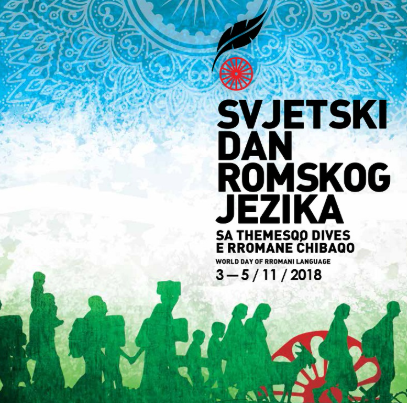Sports
Activists Demand Inclusion of Romani Language in Education Programs

On November 5, the world commemorates the International Romani Language Day, highlighting the need for preservation and promotion of one of Europe’s oldest languages. In Montenegro, however, the significance of this day remains largely unrecognized by state institutions, leading to calls for urgent action.
Elvis Beriša, the executive director of the non-governmental organization NVO ROM “Koračajte sa nama – Phiren Amenca,” emphasized the ongoing neglect of the Romani language in the educational system and public policies. There are no celebrations, educational programs, or media coverage, as if the Romani language does not exist.
Call for Educational Reform
Beriša articulated the pressing need for the Montenegrin government to acknowledge the importance of the Romani language as a cultural, traditional, and identity carrier. He urged that it be included in educational programs, at least as an elective subject or through school sections.
Despite Montenegro’s commitment to numerous international documents aimed at protecting minority languages, the Romani language lacks the status it deserves. Beriša pointed out that the absence of textbooks and trained educators leads to children from the Romani community growing up without the ability to read and write in their mother tongue.
A recent report by the European Commission acknowledged Beriša’s appointment as Montenegro’s first court interpreter for the Romani language. Yet, it stressed the ongoing lack of inclusion of the language in the educational system and recommended strengthening institutional support and promotion of Romani language and culture.
Emphasizing Collective Responsibility
Phiren Amenca highlighted that linguistic diversity enriches society rather than poses a threat. The organization advocates that preserving the Romani language should be a collective responsibility shared by institutions, educational establishments, media, and the civil sector.
Beriša concluded by stating that International Romani Language Day should not merely be a date on the calendar. Instead, it should serve as a reminder that every language is valuable and its existence relies on our willingness to learn from one another. He expressed hope that next year, on November 5, there will be noticeable progress, allowing for a celebration of joint efforts in recognizing the Romani language.
“Happy International Romani Language Day! Baxtalo o đive amare romane čhibako,” Beriša asserted, urging for a future where the Romani language receives the recognition and support it deserves.
-

 Entertainment3 months ago
Entertainment3 months agoAnn Ming Reflects on ITV’s ‘I Fought the Law’ Drama
-

 Entertainment4 months ago
Entertainment4 months agoKate Garraway Sells £2 Million Home Amid Financial Struggles
-

 Health3 months ago
Health3 months agoKatie Price Faces New Health Concerns After Cancer Symptoms Resurface
-

 Entertainment3 months ago
Entertainment3 months agoCoronation Street’s Carl Webster Faces Trouble with New Affairs
-

 Entertainment3 months ago
Entertainment3 months agoWhere is Tinder Swindler Simon Leviev? Latest Updates Revealed
-

 Entertainment4 months ago
Entertainment4 months agoMarkiplier Addresses AI Controversy During Livestream Response
-

 Science1 month ago
Science1 month agoBrian Cox Addresses Claims of Alien Probe in 3I/ATLAS Discovery
-

 Health4 months ago
Health4 months agoCarol Vorderman Reflects on Health Scare and Family Support
-

 World2 weeks ago
World2 weeks agoBailey Announces Heartbreaking Split from Rebecca After Reunion
-

 Entertainment4 months ago
Entertainment4 months agoKim Cattrall Posts Cryptic Message After HBO’s Sequel Cancellation
-

 Entertainment3 months ago
Entertainment3 months agoOlivia Attwood Opens Up About Fallout with Former Best Friend
-

 Entertainment2 weeks ago
Entertainment2 weeks agoCoronation Street Fans React as Todd Faces Heartbreaking Choice





















